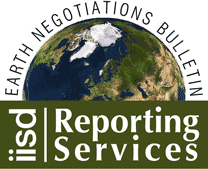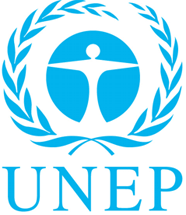
First Meeting of the Ad Hoc Open-Ended Working Group on Mercury
12 - 16 November 2007 | Bangkok, Thailand.
Web coverage:
Monday, 12 Nov | Tuesday, 13 Nov | Wednesday, 14 Nov | Thursday, 15 Nov | Friday, 16 Nov
The First Meeting of the Ad Hoc Open-ended Working Group (OEWG) to Review and Assess Measures to Address the Global Issue of Mercury began on Monday 12 November at the United Nations Conference Center in Bangkok, Thailand. During the opening plenary, delegates heard welcoming addresses from representatives of the Government of Thailand and the United Nations Environment Programme (UNEP). Delegates elected John Roberts (UK) as Chair of the OEWG, Bureau members from Mexico, Japan, Nigeria and Belarus, and adopted the agenda. In the late morning, delegates began to review and assess options for enhanced voluntary measures and new or existing international legal instruments. In an initial exchange of views delegates expressed preferences for voluntary measures, a legally-binding instrument, or a combination of both. Other delegates urged participants to engage in an open dialogue and avoid relying on entrenched positions.
During the afternoon plenary, the Secretariat introduced the report on the review and assessment of options for enhanced measures and new or existing international legal instruments (UNEP (DTIE)/Hg/OEWG/.1/2). Delegates generally praised the content of the report citing its comprehensiveness and clarity. Chair Roberts proposed that the discussion would address the issues of: unintentional releases of mercury; supply of mercury; long-term storage of mercury waste; and measures to reduce demand. In the late afternoon, delegates discussed the issue of unintentional releases of atmospheric mercury from human sources. Interventions focused specifically on response measures to reduce mercury emissions from coal usage and industrial processes. Delegates agreed to continue the discussion on Tuesday morning in plenary.
 |
 |
Delegates arriving at the UN Conference Center in Bangkok.
|
 |
| The opening of the plenary session. |
 |
 |
| Saksit Tridech, Permanent Secretary, Ministry of Natural Resources and Environment, Government of Thailand, welcomed delegates and noted that due to its bioaccumulatative and persistent nature, mercury is becoming a serious global concern. |
Shafqat Kakakhel, UNEP Deputy Executive Director, conveyed the best wishes of the Executive Director, Achim Steiner, and stressed the urgent need for addressing the problem of mercury. |
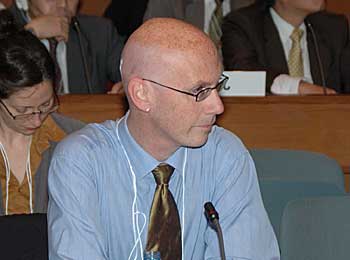 |
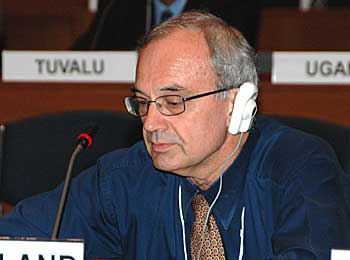 |
| Lee Eeles, Australia, nominated and Donald Hannah, New Zealand, supported the nomination of John Roberts, UK, as Chair of the OEWG. |
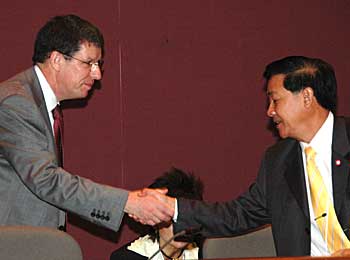 |
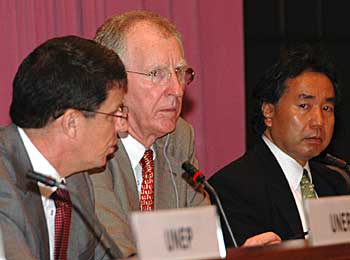 |
| Saksit Tridech, Thailand, congratulates the newly elected OEWG Chair John Roberts |
OEWG Chair John Roberts addresses the delegates |
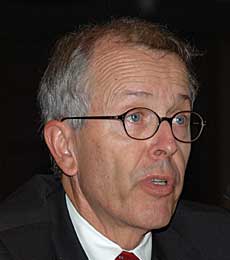 |
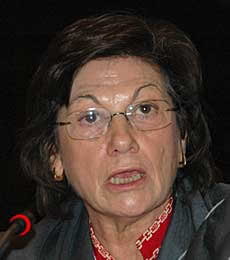 |
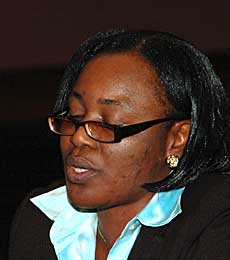 |
| Georg Karlagnis, Switzerland, said the response measures to mercury should include best available techniques (BAT) and best environmental practices (BEP). |
Margarida Cardoso da Silva, Portugal, on behalf of the European Community, said the OEWG should aim to take long-term action and commitment to reduce the global risks deriving from mercury. |
Abiola Olanipekyno, Nigeria, on behalf of the African Group, called for a legally-binding instrument, to effectively address the mercury issue. |
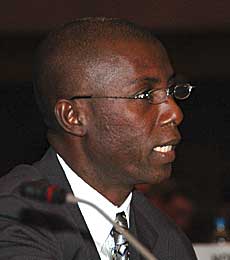 |
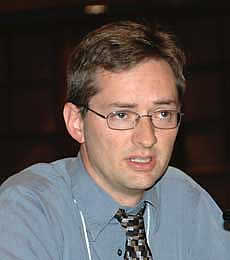 |
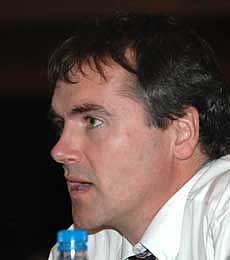 |
| Saikou Njai, The Gambia, said that voluntary measures are not very effective especially in areas where there are inadequate resources. |
John Thompson, USA, stated the meeting posed a real opportunity for risk reduction. |
Henrik Hallgrim Eriksen, Norway, highlighted that sustainable long-term efforts depend on clear international commitments. |
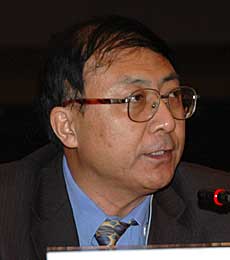 |
 |
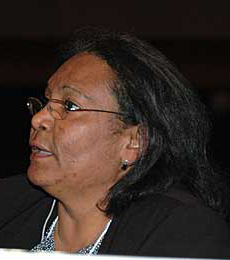 |
| Liu Zi, China, reported some mercury uses, including in chloro-alkali production, had been banned in his country. |
Melton Tanetia, Tuvalu, favored a legally-binding instrument. |
Elsa Ferrera, the Dominican Republic, stressed the need for strengthened regional processes to address mercury. |
 |
| The plenary room |
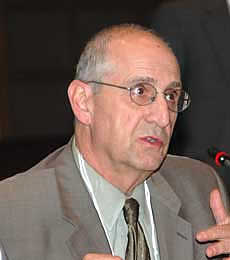 |
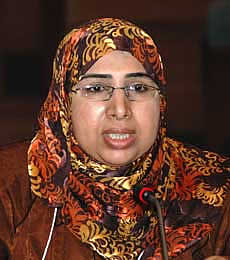 |
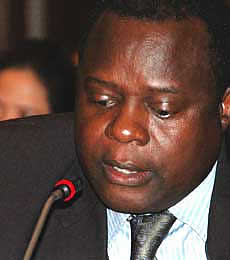 |
| Jack Weinberg, Health Care without Harm, stressed the need for new and additional funding. |
Mozasalim al Jahwari, Oman, explained that technical and financial assistance were needed to effectively address the challenges posed by mercury. |
Gerald Kusoke Sawila, Uganda, commited to collaborating with other parties in working toward a new legally-binding instrument. |
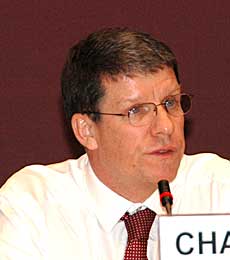 |
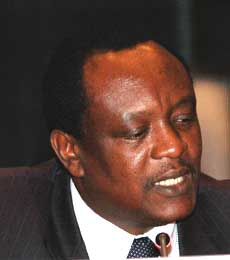 |
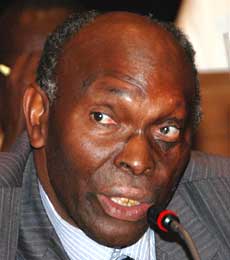 |
| John Roberts, UK, OEWG Chair, summarized the outcomes of the discussion on unintentional releases of mercury. |
Ndiaye Heikksylla, Senegal |
Francis Kihumba, Kenya, discussed available response measures from coal usage and industrial processes. |
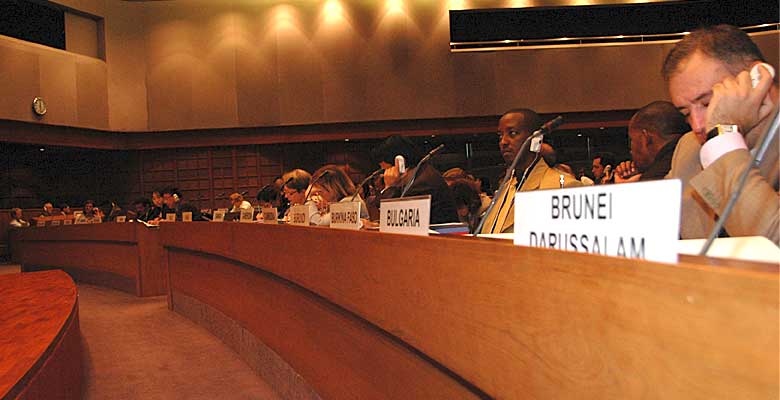 |
| Delegates participating in the discussion. |
Web coverage:
Monday, 12 Nov | Tuesday, 13 Nov | Wednesday, 14 Nov | Thursday, 15 Nov | Friday, 16 Nov
- To the top of the page -

Digimarc and the Digimarc logo are registered trademarks of Digimarc Corporation. The "Digimarc Digital Watermarking" Web Button is a trademark of Digimarc Corporation, used with permission.
Please e-mail the Digital Editor should you have any questions regarding the content of this page.
| Back to IISD RS "Linkages" home | Visit IISDnet | Send e-mail to ENB |
© 2007, IISD. All rights reserved.

